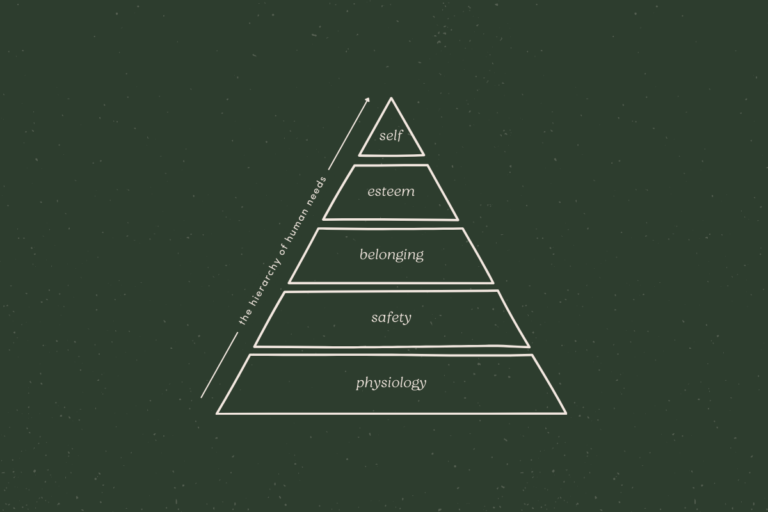
Have you ever found yourself wondering why some people seem to knock down one New Year’s Resolution after the other, while you still haven’t looked at that fitness app you downloaded months ago?
The answer is quite simple – we’re all wired differently. Unfortunately there isn’t a one-size-fits-all strategy for building habits and reaching your goals, and embracing this will completely change the way you approach them.
It’s incredibly difficult to make progress when we’re using strategies that don’t work with our personality. That’s why tremendous value lies in gaining a deeper understanding of the way you function and what strategies will help you get where you want to go.
The Four Tendencies
Enter Gretchen Rubin and her brainchild – the Four Tendencies Framework. Gretchen is the author of several bestselling books you’ve probably heard of like ‘The Happiness Project’. She also hosts a the great ‘Happier’ podcast with her sister, where she talks all about happiness and habits.
After doing a bunch of research on human behavior, Gretchen figured out that there are generally 4 behavioral tendencies that people fall into. These tendencies describe how we respond to expectations – both outer expectations (deadlines, requests from your boss, etc.) and inner expectations (building a new habit, New Year’s Resolutions, etc.).
As it turns out, the way you respond to these expectations says a lot about the way you build habits and reach your goals. So if you’ve been wondering why you can’t seem to start meditating, spend less time on social media or get your booty to the gym, this one’s for you!
Figuring out your tendency
By finding out your tendency, you can learn how to manage yourself and get better at creating the life you want.
To help you figure out your tendency, Gretchen has a short quiz on her website. After taking the quiz, consult your tendency below to learn about your personal strategies for building habits and reaching goals.
You’re an upholder
According to Gretchen, “upholders respond readily to outer and inner expectations”. They find it easy to meet deadlines, but also follow through on their personal goals and resolutions. They enjoy building habits and love to “move smoothly through their daily schedule and their to-do lists”. They’re strongly motivated by the fulfillment and satisfaction they get from meeting expectations.
Here’s the catch: Upholders can easily feel anxious when it isn’t clear what is expected of them, or when they’re not sticking to the rules. They can also get overwhelmed by all the expectations they’re trying to meet, making them prone to stress. Especially if you’re an upholder as well as a perfectionist, things can get tough.
Here’s your secret weapon: Use scheduling as a strategy to build habits and reach your goals. You’re great at managing yourself, and once you set an expectation for yourself you tend to follow through. So, schedule everything you want to do in time blocks on a calendar, to ensure that it will happen.
Also make it a point to carefully monitor your progress, using lists or apps. Split your goals up into bite-sized pieces that you can cross off one by one.
Lastly, try not to set too many goals at the same time, so you don’t get overwhelmed. And if you do, take the time to do a brain dump of everything you need/want to do to gain clarity.
You’re a questioner
If you’re a questioner you tend to… well, question expectations. Questioners will meet an expectation only if they think it makes sense – “essentially, they make all expectations into inner expectations”, according to Gretchen. They looove efficiency and need to have logical instead of arbitrary reasons for the things they do.
Here’s the catch: Questioners can get into an endless spiral of research, which is very tiring for themselves and others. Their need for perfect information can paralyze them, preventing them from actually working on habits and goals.
Here’s your secret weapon: When you’ve made up your mind to do something, you’re great at sticking to it. But you need to take time to understand why you’re doing what you’re doing – get informed, do research. Why should you be drinking 8 glasses of water a day? What are the benefits of exercising in the morning?
Another useful strategy for questioners is to track their progress, just like upholders. After all, what better way to convince yourself about the importance of a goal/habit than to actually see the positive results?
You’re an obliger
“Obligers meet outer expectations, but struggle to meet expectations they impose on themselves”. An obliger is very motivated by external accountability, and will always meet deadlines, show up, and come through. They’re people-pleasers who hate letting others down.
Here’s the catch: Obligers have a really hard time holding themselves accountable, which makes it pretty difficult to build habits, reach personal goals, and make time for themselves.
Here’s your secret weapon: To help you build habits and reach goals, the magic trick is to create systems of outer accountability. Go to the gym with a friend, so you have someone else depending on you. Sign up for a class where you get charged if you don’t show up, to create a consequence that holds you accountable. Set a bunch of deadlines to help you reach your goals.
One of the best tips for an obliger is getting an accountability buddy or group whom you share your goals and progress with. But you can create external accountability in smaller ways as well. For instance, just having a notification to remind you could be a system of accountability that works for you. Another simple but effective strategy is to let someone you care about (and don’t want to let down) know about the goal you’re trying to achieve.
You’re a rebel
If you’re a rebel, you “resist all expectations, outer and inner alike”. I’ve been telling all my friends which tendency I think they are, and one of my best friends is 100% a rebel. When someone tells him to do something, chances are he’s going to do the exact opposite. He does whatever he wants to do in the moment, which is a very powerful thing.
Here’s the catch: This tendency to resist expectations makes it quite challenging to build habits or reach goals, especially if it’s not what you feel like doing in the moment.
Here’s your secret weapon: You’re authentic and 100% in touch with your desires. You think outside the box and love to break the rules and innovate. You can use that rebellious energy to manage yourself in several ways.
One way is to turn goals/habits into desires. If it feels like something you want to do instead of something you should do, you will be more likely to follow through. This works even better when you view the goal/habit as a way to express your identity.
A great tip from habit expert James Clear is to make habits more attractive by associating your desired behavior with something you want to do, also known as ‘temptation bundling’. For instance, you could choose to only watch reality TV when doing household chores.
Another strategy is to focus on how good it feels in the moment when you’re performing a habit (e.g. doing yoga in the morning), to make it more desirable.
Lastly, you could try to set goals and build habits you don’t believe you can accomplish. This challenge might just be what helps you succeed.
More resources
If you want to learn more about The Four Tendencies and how to work with yours, Gretchen wrote a whole book on it!
I also highly recommend listening to the ‘Happier’ podcast, where Gretchen and her sister discuss the many creative strategies people with different tendencies use to manage themselves.






